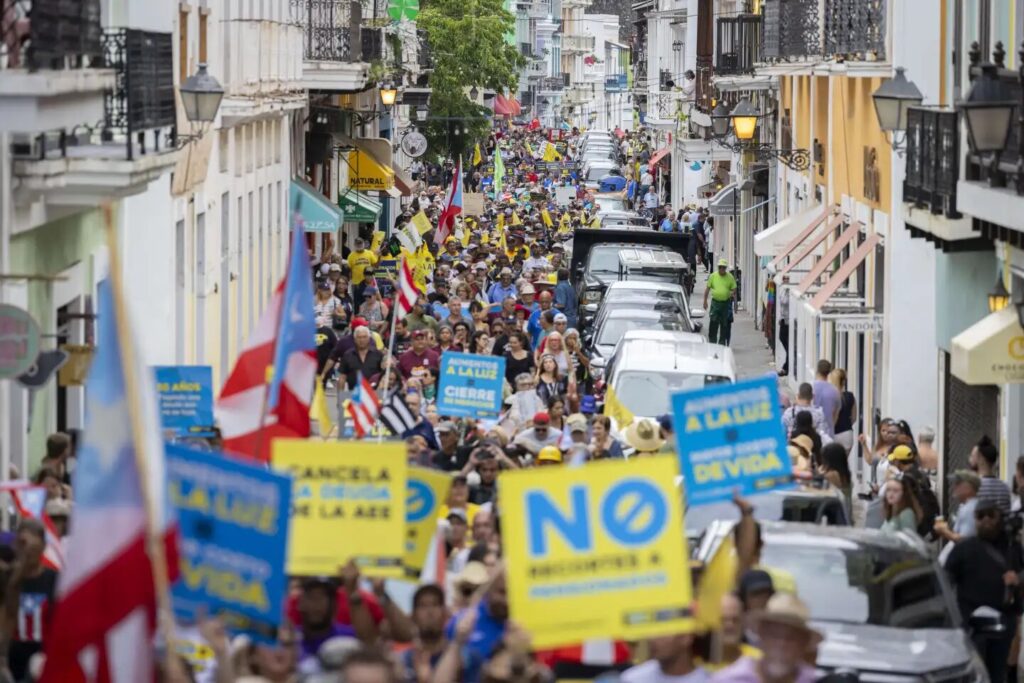SAN JUAN (AP) — Hundreds of people including religious leaders, economists, teachers and retirees this week protested a proposed increase to already high electric bills that a growing number of people in the U.S. territory are struggling to pay.
The crowd marched toward the governor’s mansion, where they hoisted Puerto Rican flags up high and held up signs warning that an increase in power bills would lead to an unsustainable rise in the island’s already expensive cost of living.
The proposed increase is part of a debt restructuring plan to pull Puerto Rico’s power company out of bankruptcy, an effort that has failed multiple times as bondholders threaten to sue to recuperate their investments. If approved, the current residential rate of 25 cents per kilowatt hour would nearly double over the span of 30 years.
A federal judge overseeing the bankruptcy process held a hearing Wednesday on the issue after delaying approval of the proposed debt restructuring plan.
Residential electricity rates in Puerto Rico are currently almost double those in the U.S. mainland, while industrial and commercial rates are more than twice as high, according to the U.S. Energy Information Administration.
The fear of possibly higher power bills prompted many to join Wednesday’s protest, including Rev. Lizzette Gabriel, bishop of Puerto Rico’s Methodist Church.
“The higher the energy costs, the less money a family has to survive, and not everyone has money to install a solar system,” she said.
She worried that more expensive power bills would also force small businesses to close and churches to cut back on their services. More than 40% of Puerto Rico’s 3.2 million inhabitants live below the poverty rate, compared with a 19% rate for Mississippi, the poorest U.S. state.
Many in Puerto Rico also are outraged about the proposed increase given ongoing power outages blamed on a crumbling power grid that was not properly maintained and has not been rebuilt since Hurricane Maria ravaged the U.S. territory in September 2017. Power outages were reported across the island on Wednesday amid heavy rain and lightning produced by a strong tropical wave in the region.
Cristina Miranda Palacios, executive director of the nonprofit League of Puerto Rican Cities, said the proposed increase is not fair or acceptable.
“It’s inconceivable that the people, including the most marginalized and economically disadvantaged populations, have to bear this cost for a highly questionable quality of service,” she said.
Puerto Ricans say they are not responsible for the actions of government officials who for decades accumulated more than $70 billion in public debt through corruption, mismanagement and excessive borrowing.
In 2015, the U.S. territory’s government announced it was unable to pay its debt, and in 2017, it filed for the biggest U.S. municipal bankruptcy in history. The debt of nearly all the island’s government agencies has since been restructured, except that of Puerto Rico’s power company. It is the largest held by any state agency at more than $10 billion.



